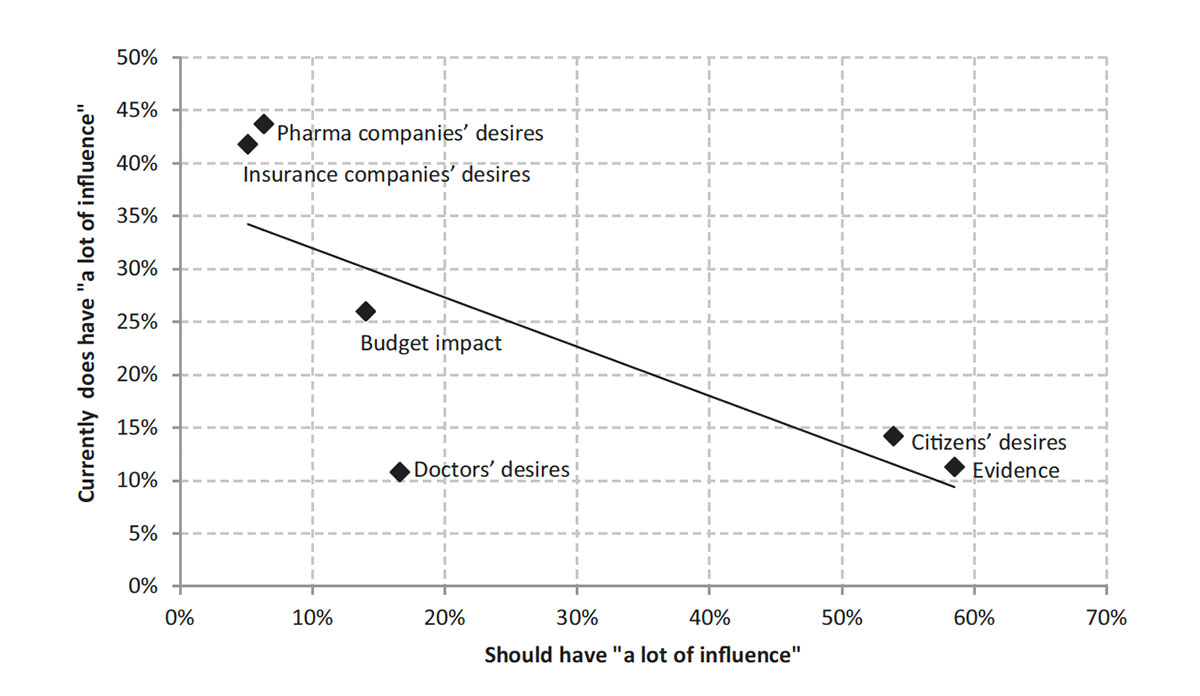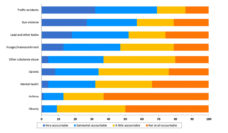Influencing legislation often becomes the final aim for researchers who want their findings to have maximum impact. However, translating evidence into policy is difficult. Research often doesn’t reach policy makers, but public opinion can. Although not foolproof, public opinion can influence politicians’ priorities. The ability of the public to sway policy makers motivated Jonathan Purtle to investigate public opinion on evidence-informed health policy.
Purtle surveyed 532 people in February 2018 on the role of evidence in influencing policy. Purtle asked respondents to rank a variety of potentially influential components in policy making. He then compared factors that respondents ranked as having high influence on policy makers to factors that respondents perceived had low influence.
The graph shows the six factors investigated. The line on the graph moves from the upper left, representing factors that currently influence policy makers but shouldn’t, to the lower right, where factors that “should” have influence but respondents don’t believe do. Top responses included “evidence” and “citizens’ desires” as factors that should have a lot of influence but are believed to hold very little. On the opposite end, respondents thought that pharmaceutical and insurance companies hold a lot of influence over health policy but should have very little.
Purtle argues that these findings can be used to motivate elected officials to put greater emphasis on evidence in their decision-making process. But the real-world question remains: is public opinion enough to push aside campaign funding and lobbying expenditures as the forces that sway policymakers?
One example proves it is possible. In 2013, Mexico passed a tax on sugar-sweetened beverages, a feat that has failed many times in US states and municipalities. One major reason behind the success was an advocacy campaign that rallied public support. Perhaps researchers should lean more on their power as a citizen than their academic credentials to achieve actionable results.
Databyte via Purtle J. Public opinion about evidence-informed health policy development in U.S. Congress. Translational Behavioral Medicine. December 2020.














